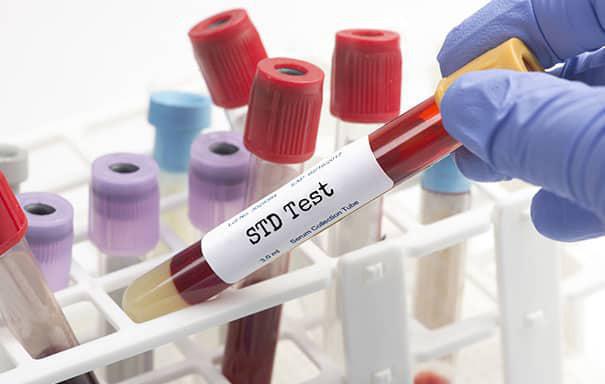STD Test: Why You Need It and What to Expect
Sexually transmitted diseases (STDs) are diseases that may be passed through sexual intercourse. Sexual health and disease prevention depend on testing. Early STD testing identifies infection, allowing treatment to start before complications are established.
Why You Need an STD Test
You should be tested for STDs for several reasons:
Early Detection: STDs do not show symptoms during early stages. They can be detected even before they become threatening.
Protect Your Health: STDs become serious health issues if left untreated, leading to organ damage and infertility.
Prevent Transmission: Knowing your status ensures your partner(s) protection from infection.
Peace of Mind: Regular testing brings confidence in oneself’s sexual health.
Who Should Be Tested?
You should get an STD test if you:
- Are sexually active, especially with multiple partners.
- Have had unprotected sex.
- Are entering a new relationship.
- Have symptoms such as unusual discharge, painful urination during sex, or sores.
- Have a sex partner with an STD.
- Are pregnant or in the process of becoming pregnant.
STD Tests Shared by Many
There are many tests different STDs require. Some of the most common ones are listed below:
Blood Tests: Tests for infections such as HIV, syphilis, and hepatitis.
Urine Tests: Identify infection such as chlamydia and gonorrhea.
Swab Tests: Swab of the test at the site of infection (e.g., genitals, throat, or anus) to be tested for infection.
Physical Examination: A physician might check for sores, warts, or rashes.
Preparation for STD testing is usually easy. Just do the following easy steps:
Follow Directions: There are few tests that you will be requested to hold urine for some hours before the test.
Be Honest with Your Health Care Provider: Be honest when talking about your sex history.
Ask Questions: Don’t be afraid to ask your questions of the health care provider.
What to Expect during the Test
The process of the test will vary with the type of test, but it is usually:
Blood Sample: A small arm prick blood test.
Urine Sample: Providing a urine sample in a clean cup.
Swab Sample: Taking fluid or cells from the site of infection.
Physical Check: Brief physical checkup if necessary.
Understanding Your Results
The results of an STD test will take a few days to one week. The results are usually divided into:
Negative: No infection.
Positive: An infection is present and treatment needs to be started.
Inconclusive: The test was inconclusive and a repeat test can be required.
If your test is positive, seek your doctor’s treatment recommendations and notify your partner(s) so that they may be tested and treated if necessary.
Treatment Options
Most STDs are cured with medication, usually antibiotics or antiviral medications. Early treatment will cure or effectively treat the disease. For long-term infections such as HIV, effective treatment will drastically decrease the chance of passing on the disease and live normally. Contact us to know more about when should you be tested?
How Often Should You Be Tested?
Based on your lifestyle and risk factors, how often you should be tested is as follows:
Once a year: If sexually active.
Every 3 to 6 months: If having many partners or high-risk activity.
Pregnancy: To prevent the baby from potential transmission.
Confidentiality and Privacy
STD.testing is confidential, and your health care provider is legally bound to maintain confidentiality of your information. If anonymity is an issue, seek clinics that provide anonymous testing.
Final Thoughts
Testing for STDs is a good and an ethical part of keeping yourself healthy. Early treatment will prevent complications from arising and protect you and your partners. Don’t hesitate to come in if you suspect that you might be at risk. Getting screened on a regular basis is an act of self-respect and self-love.

